Sent to you by moya via Google Reader:
Things you can do from here:
- Subscribe to Liquor&Spice using Google Reader
- Get started using Google Reader to easily keep up with all your favorite sites
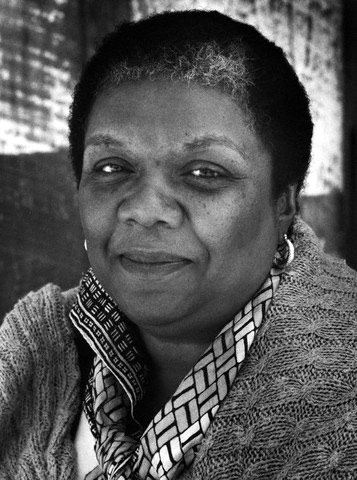
In honor of the great poet Lucille Clifton, who was also a survivor of childhood sexual abuse, a mother, an artist and self-identified Amazon warrior through her poetry, the Lucille Clifton ShapeShifter Survival School is especially designed for families that are committed to ending childhood sexual abuse and all forms of gendered violence. Informed by Generation 5 and the regional plan of the Atlanta Transformative Justice Collaborative, the ShapeShifter Survival School is part of a holistic process of ending child sexual abuse by creating healing community.
Lucille Clifton Rebirth Summer
2011
F0r 5 Thursdays in Lucille Clifton's birth month of June we will gather as survivors of child sexual and physical abuse and sexual violence and parents and caretakers committed to ending cycles of abuse in our families and communities to do writing activities based on Lucille Clifton's poetry and the ShapeShifter Survivor Rebirth Broadcast video series. (See videos here: http://blackfeministmind.wordpress.com/category/shapeshifting/). Participants in the series will also receive digital mixes of the music we work with to create a sacred space of memory. We can use the digital music mixes at home to activate memories of safety from the group writing space.
Thursday. June 2
Unapologetic: Reclaiming Our Memories and Voices
Thursday, June 9
Bright: On Clarity and Power
Thursday, June 16
Gentle: On Cultivating Self-Love
Thursday, June 23
Futuristic: Towards the World that We Deserve
Thursday, June 30th
Planetary: The Depth and Urgency of Our Healing

all gender expressions welcome to apply.
must be a person of color.
One of the guiding principles behind Nuñez Daughter and iwannalive productions and, well, the 'Net, is that making media should be as cost free as possible. Computers and internet access are already very, very expensive (net neutrality is good for #blackgirls). No one should have to pay hundreds of dollars for word processing or photo editing software, blog editors, and storage on top of that. Unofficially, 90% of the tools used to make and maintain Nuñez Daughter and iwannalive productions are free of charge.
A favorite tool of ours is Picnik.
Picnik, an online photo editing software, appeared in 2005, started as part of Flickr, and was purchased this year to be part of the Google family. Picnik operates from within your browser (which means there is no software to download to your computer) and includes a range of photo sharing possibilities. You can connect to your photos in Picasa, Facebook, MySpace, Photobucket, Yahoo Search, webcam, URL, and upload from your own computer. When you are finished editing, you can save to the same places or save to Picnik (with a free account you can save the last five photos you were editing).

Once you upload an image, there are five tabs to work with. The first two are account settings and other documentation:
HOME: All the basics you can ask for. A welcome page, a link to the help forums, a button to "Buzz" and enjoy the gratuitous self-promotion by the folks at Picnik), privacy policies, terms, about page and a glimpse at your account (change your password, change your photo quality, upgrade to premium).
LIBRARY: A Start button to lead you into the photo editing process, tabs that let you upload your photos from your computer, create slideshows, go back in your history, upload from URLs, Yahoo search and more.
The last tab (SAVE & SHARE) let's you save and share to the same sites in a range of file formats: .jpg, .png, .tif, .gif, .pdf, and .bmp.
The middle two tabs are where the magic happens. From the EDIT tab, you can rotate, crop, and resize the image, change the exposure, adjust the color, sharpen the image and fix any red eye. As you proceed, you will be asked to save the changes at each step but an undo button will fix the most recent edits.

From the CREATE tab, you have a range of free and premium options that let you change and add effects to the edited image. From there, you can add frames, text, stickers, invert colors, fade, blur, blush, brighten and more. The free options are more than enough to significantly change an image. Here's the same image of Lorraine, cropped, gooified, posterized, 1960s'd, with a unicorn sticker (under Mediaeval) faded to 20% & dyed a burnished red #9F2700, all in a drop shadow frame with the "iwannalive productions" copyright in white (#E1FFD9) in the lower right-hand corner:
 ( This image is hilarious to me for some reason. Maybe because Lorraine is my unicorn? Mmmm. #BlackGirlGenius)
( This image is hilarious to me for some reason. Maybe because Lorraine is my unicorn? Mmmm. #BlackGirlGenius)
Once you're done, share the image on Flickr (friend us!), Facebook, Picasa (friend us!) or save it to your computer.
Want more? We will be sharing skillz throughout the month as Nunez Daughter counts down to the Allied Media Conference where shawties with skillz to share will be teaching each other and AMC attendees what we know. Join us!!!
If you can't join us, pre-purchase our 'zine! We will document all the fabulousness of the skills shared with a zine, dropbox folder, and cd that encompasses digital versions of the skills we shared all housed online in a dropbox or via a CD or zine we could mail to you. For just $7 (the price of a fancy cup of coffee) you can live or relive the dream that was this years Skillshare!
And if you can't do either, but you like what you see, donate a few dollars or fifty dollars to help us get there and support our goal of spreading radical woman of color media making around the globe.
What free photo editing or image sharing software do you use? If you've tried Picnik, how do you like it?
~*~*~*~*~*~~*~*~*~*~*~*~*~
Kismet Nuñez is one of the Skillsharers of the of the 3rd Annual INCITE! Shawty Got Skillz workshop at the 2011 Allied Media Conference! Help us get to Detroit! Click here!
wait, how is this rape? i apoligize but it doesnt stand out to me like that. the twin in the airport isnt aware his brother is pretending to be him. so she would have sex with the brother instead of her boyfriend. it would be consensual, but obviously a misunderstanding, and obviously a super douchy thing for him to do. but i dont call that rape. please correct me if im wrong. thats just my view. i watched it twice and saw no signs that he was going to use force on her, but maybe i missed it.
I don't care what YOU call it. I care what the law calls it and I care what the victim calls it.
If a person cannot or does not consent, it is rape. Doesn't matter whether it's a black eye they end up with or not. Too many people think a person has to be battered or beaten nearly to death to call it rape (some of those laws that have been coming on the books lately? yeah, those).
This commercial is depicting rape. The woman thinks she is with her boyfriend so she is consenting to be with him - however, the man is not her boyfriend and is pretending to be someone else to gain her consent. That is illegal and it's rape. She has not consented to be with him, she has consented to be her boyfriend.
No, it's not a "douchy thing to do," it's rape. Plain and simple. So let me run this down for you (and whoever else might see this post):
- If your partner is under the legal age of consent in your state, it is rape. Doesn't matter if they "like" you or "like" it. Most states are between 15 and 17 for legal age. Under that is what's called "statutory rape."
- Statutory rape is a crime. Statutory rape is rape. So, if a 25 year old person has sex with a 12 year old person, that is rape. Even if they "like" each other (please notice my quotation marks for emphasis on sarcasm), it is rape. It is illegal. It is a crime.
- If your partner does not say yes (giving consent), it is rape.
- If your partner is drunk, passed out, or unconscious, it is rape.
- If your partner does not give consent to have sex with you and whoever else you might bring in (like asking to have a threesome and s/he says yes but 5 more people show up), it is rape.
- Even if the victim does not experience a violent situation, it is rape.
- If you don't have a clear YES, don't do it.
I'm sad to know we have to outline these things for people. I really am.
Also, none of these things can be argued. You can try if you want, but you can't. The law is clear and it's there for a reason. If your partner is under the age of consent (meaning, even if your partner says "yes," it doesn't matter because they cannot consent at their age) or doesn't explicity say yes to YOU (not your fucking rapist twin brother), it's rape. It's a black and white situation. It's very simple.
the commentary.
unfortunately, a lot of people do not realize that rape is not always about the stranger in the alley. more often than not, rape is committed by people we know.
and, this commercial illustrates that idea perfectly.
Oftentimes women complain that they hate going to the gynecologist because they don't like the procedures. Sometimes it is likened to going to the dentist but more uncomfortable and personal. I can't say that my reasons are related to the procedures. In fact, what makes me most uncomfortable about the speculum is the historical exploitation of black women whose bodies were violated as subjects in the development of this tool.
I also cannot say that I dislike the intimate discussions about my personal life and habits. Ideally this space should be like going to a mental health therapist where I would have an opportunity to learn about my body, my habits, and my emotional well-being without feeling less than or abnormal. Unfortunately this is not what happens.
Why do I have such idealistic notions regarding the possibilities of a gynecological visit, you might ask? Well I have had phenomenal experiences early in my life that suggest that my ideas about gynecological safe spaces could be the norm. I want to take a quick moment to shout out three good experiences out of numerous horrific encounters. Nurse Fuqua at Spelman College Health Center, a black woman who taught me to feel powerful as a sexual being and to be cautious. Dr. Martin Dukes, a retired black male doctor who always made sure to have another person present and was deliberate about making me as comfortable as possible in the exam room. The Feminist Women's Health Clinic in Atlanta has been a "breath of fresh air." I engaged in real-talk with the white female nurse practitioner (whose name I cannot remember) and was treated like a grown up worthy of dialogue and not health-insurance-speak. Unfortunately I the FWHC cannot function as my primary health provider.
So I have told you the good, now here are three ridiculous scenarios I have experienced myself and one disturbing story I have been told by many friends, who are black women.
1. Most recently I went to a gynecologist at a clinic and the black female doctor was so extremely rude and rough that I literally left in pain and with an unhealthy fear of returning. When I came back to get test results I brought a friend, who at one point actually asked the doctor to leave the room. I wanted to do violence, and those who know me know that is out of character.
2. In 2009 I went to black female doctor and during my examination I requested an AIDS test, and she replied, "but aren't you married." (Strike one, two, and three–you cannot be my doctor).
3. In 2008 I was having pain in my uterine area and was going to "holistic" black female doctor who gave me an ultrasound which indicated that my ovary was attached to my uterine wall. Even though the pain was on the opposite side of my uterus she suggested outpatient surgery. The background story is that she had identified that my estrogen levels were high and that I drank soymilk regularly. It turned out nothing was wrong, I stopped drinking soymilk and the pain went away instantly, and realistically as second ultrasound (which is cheaper and less invasive) would have revealed that my ovary was not attached to my wall. Needless to say that was my last visit there.
4. Over the past few years I have been having this discussion about finding a good gynecologist. I am very disturbed that one of the main reasons why many women I know indicate that they stopped going to the gynecologist altogether is because they would go for an annual exam and get a lecture on weight loss and BMI. Now it is one thing for a doctor to have a holistic discussion about healthy bodies. It is something totally different to peddle weight loss programs and pharmaceutical drugs in a gynecological space, especially if it has no bearing on the concerns that bring women into the space.
What am I looking for in a gynecological relationship?
1. Access–I don't want to wait 6 months to see my doctor about a yeast infection.
2. Dialogue–I need them to respect me enough to give me non-scripted explanations provided by pharmaceutical and insurance companies. I want to know why you are asking particular questions about recreational drug use and how that is related to my uterine health.
3. Be gentle and kind–Recognize that internal investigations and treatments are intimate and have emotional costs.
4. Be supportive–If I am in good health, don't target me for weight loss products and leave my body esteem intact.
5. Respect me–If I have particular concerns address them to the best of your ability and refer me to someone else if you cannot. Furthermore, don't require me to fit into a normalized lifestyle to receive excellent care, know your craft and treat me as an individual.
As you can see, I have a commitment to supporting black female and women-of-color doctors, but honestly my best experiences have been with female nurse practitioners. It is not my intent to suggest that black female doctors are not good gynecologists, my experiences suggest this but I simply refuse to believe it. Ultimately, I want to open up some dialogue about the right to have good gynecological experiences. What are some of your good/bad/ugly stories? What are you looking for? What have you found?
Ahhh…..Friday!
So I was at an academic dinner last night and ended up in a long conversation about Beyonce's three performances of her "Run the World (Girls)" single: the video, the Billboard Awards, and the Oprah show. Since a computer is always nearby, we pulled up all three (along with Janet Jackson's "Rhythm Nation" video–more on that later). The conversation reflected a serious generation gap (lots of "Why can't she cover up" type of talk) but was engaging all around….
Until a colleague of mine, peering over my shoulder at the "Run the World (Girls)" video, tilted her head and asked me, "So is Beyonce saying sexy, light-skinned, long-haired women run the world?"
*crickets*
Well, well. Remember this image?

This crowd of light-skinned, ambiguously ethnic women in garter belts (love) and multi-colored dresses facing down a crowd of dark-skinned, ambiguously African men with guns?
Damn.
Yes, I mentioned it in my post on Beyonce. But I was so busy being mad about war and empire that I didn't think to expand on it. Or connect it with power and running the world
Even when the Octopus hit me up on my Facebook wall with this trailer/short preview of Bradinn French's new documentary Dark Skin…
Dark Girls: Preview from Bradinn French on Vimeo.
…I didn't make the jump. And I blame my own color privilege for that.
Black feminist and Radical woman of color bloggers have been having this conversation for awhile. Moya Z. B. posted a provocative "Light-Skinned Privilege Checklist":
Light Skin Privilege Checklist
- In most situations where I am with other people of color, white people will try to communicate with me first.
- I am more likely to appear in the media, especially if my skin affords me the designation "omniracial." (Hello, Beyonce.)
- People will think I am pretty. full stop.
- I am more likely to get a promotion than my darker skinned counter parts.
- I can write blog pieces about my skin color and not reflect on the privileges that are associated with it. (Wallace Thurman notwithstanding, literature, films, blogs are littered with primary and secondary textual analysis of the meanings of light skinnededness.)
(I clearly failed at the last. And the first is just…well…#pow)
And Alicia Gill, a visibly black but not "dark" boricua blogger wrote this about being teased by dark-skinned classmates and having to put it in a larger perspective:
our stories are so filled with pains. my pain of wanting to be accepted, by the people i desperately needed as cohorts in a racist classroom, school, and world, and i imagine, their pain, of never being seen as "as pretty as" or "as smart as" me- even though I was being tokenized, and experiencing painful racism myself. They were feeling all of these things, whether i wanted them to experience them or not. but that's the nature of privilege. i sure wish it wasn't their experience, but it was, and i own that. i knew that their putting gum in my hair was not about their personal hatred for me. it was about their hearts being fed up and filled with hurt, at a system that constantly reinforces my type of beauty over theirs. even at a such a young age. we've all seen the doll tests, and color chart tests, where little black girls choose white dolls to have all of the positive attributes [smart, pretty, kind] and the black dolls have all of the negative ones [dumb, mean, ugly]. i think we should be acknowledging and holding that pain and desperation. these are ten year old girls, who have already gotten the message that lighter skinned girls are a threat, because they are perceived as better than you. these are ten year old girls who have already gotten these messages from somewhere.
But to consider it in context with Bey's video, and my own brush off of the same ,just brought it full circle for me.
Because color is privilege in the United States and, I'd argue, around the world. We don't like to think about it that way because for so long, U.S. institutions based their discrimination solely on race and one-drop rules. Anyone of African descent, regardless of skin color, was stuck drinking from the "colored" water fountain. And now that laws have moved oppression into less visible spheres, we like to talk about class discrimination. Or gender.
Sometimes we do have conversations about paper bag tests and "house slaves" (a myth I plan to debunk in a future post), and black sorority rivalries, but these are conversations that happen within the community. It really isn't in our national memory or imagination to have a conversation about mainstream, institutionalized color privilege.
For example, once upon a time, the slaves most likely to be freed were the female consorts (consensual or not) of slaveowners and their mixed-race children. Rule of thumb across the Atlantic world. And freedom meant that you owned your labor. And owning your labor meant that you got to keep what you made, build wealth, buy land, enter into contracts, own slaves if you wanted, and pass on anything you built to your (also free) children. And your (free) children could also build on what you created by buying more land, owning more slaves, expanding business, etc. etc. etc.
Meanwhile, the vast majority of black people across the United States were…well, slaves. Who didn't own their own bodies, much less their own labor. And who built things, and created and ran businesses even–but whose work was integrated into the inheritance of their master and his or her children. You could create it and know that you owned it but it would never be recognized as yours and you would never be the author and whenever you or your children got free you would always, always, always have to start damn near from scratch (at least in comparison to what your labor created).

"Weeding Rice Field, U.S. South, 19th cent.," Charles C. Coffin, Building the Nation (New York, 1883), p. 76 as shown on www.slaveryimages.org, sponsored by the Virginia Foundation for the Humanities and the University of Virginia Library.
It should come as no surprise that the oldest and deepest pockets of black wealth across the country have historically been centers of free black life during the period of slavery–the DMV (D.C.-Maryland-Virginia), New Orleans and its Mexican and Californian diaspora, South Carolina's Atlantic coast, New York City, the Boston-Martha's Vineyard circuit…..
It should also come as no surprise that these have also been home to some of the lighter complected of our race.
I love my color. But if color is capital, my nut brown self is privileged and middle-class. In fact, I can actually claim real estate in the Exotica subdivision of color privilege because I'm a proud boricuan Nuñez Daughter. Yay for me.
Not really.
Because it is draining to have to fight through assumptions of them and of myself, and as a woman to learn to balance my own wholeness against the same. It is draining to navigate a family where color and ethnicity range widely–as all families these days do. And because we didn't talk about, because no one ever really talks about it, like most women, I grew up with it and saw firsthand the damage it did to other women, to men, and was damaged by it myself. The lighter girls were "pretty" and got stuff but they were also hyper-sexualized at younger ages. The darker girls were "ugly" and usually end up in trouble and almost never had public boyfriends. And I'm not saying this applies to everyone-everywhere. There are individual differences. But the overlapping layers of power are there.
And because it is so personal, we end up in individual stories of the impact of colorism instead of expanding beyond and considering how assumptions about light and dark are fundamentally impacting access to education, employment, profession development opportunities and more. If we don't own that privilege then we can't begin to fight to unravel it.
This documentary looks like a really important way to continue the conversation. What do you think?
~*~*~*~*~*~~*~*~*~*~*~*~*~
Kismet Nuñez is one of the Skillsharers of the of the 3rd Annual INCITE! Shawty Got Skillz workshop at the 2011 Allied Media Conference! Help us get to Detroit! Click here!
Start your day celebrating the unstoppable, unkillable, unforgetable power of BLACK QUEER YOUTH! Today would be Sakia Gunn's 23rd Birthday and SO in a special Eternal Summer of the Black Feminist Mind/SpiritHouse collaboration and as part of our ongoing leadership development project 18 year old visionary Matthias Pressley and yours truly (Sista Docta Lex) collaborated to create this podcast celebrating the life and legacy of Sakia Gunn. We love you forever Sakia!!!
[audio http://brokenbeautiful.files.wordpress.com/2011/05/sakia-gunn-birthday-podcast-1.mp3]
Direct link: http://brokenbeautiful.files.wordpress.com/2011/05/sakia-gunn-birthday-podcast-1.mp3
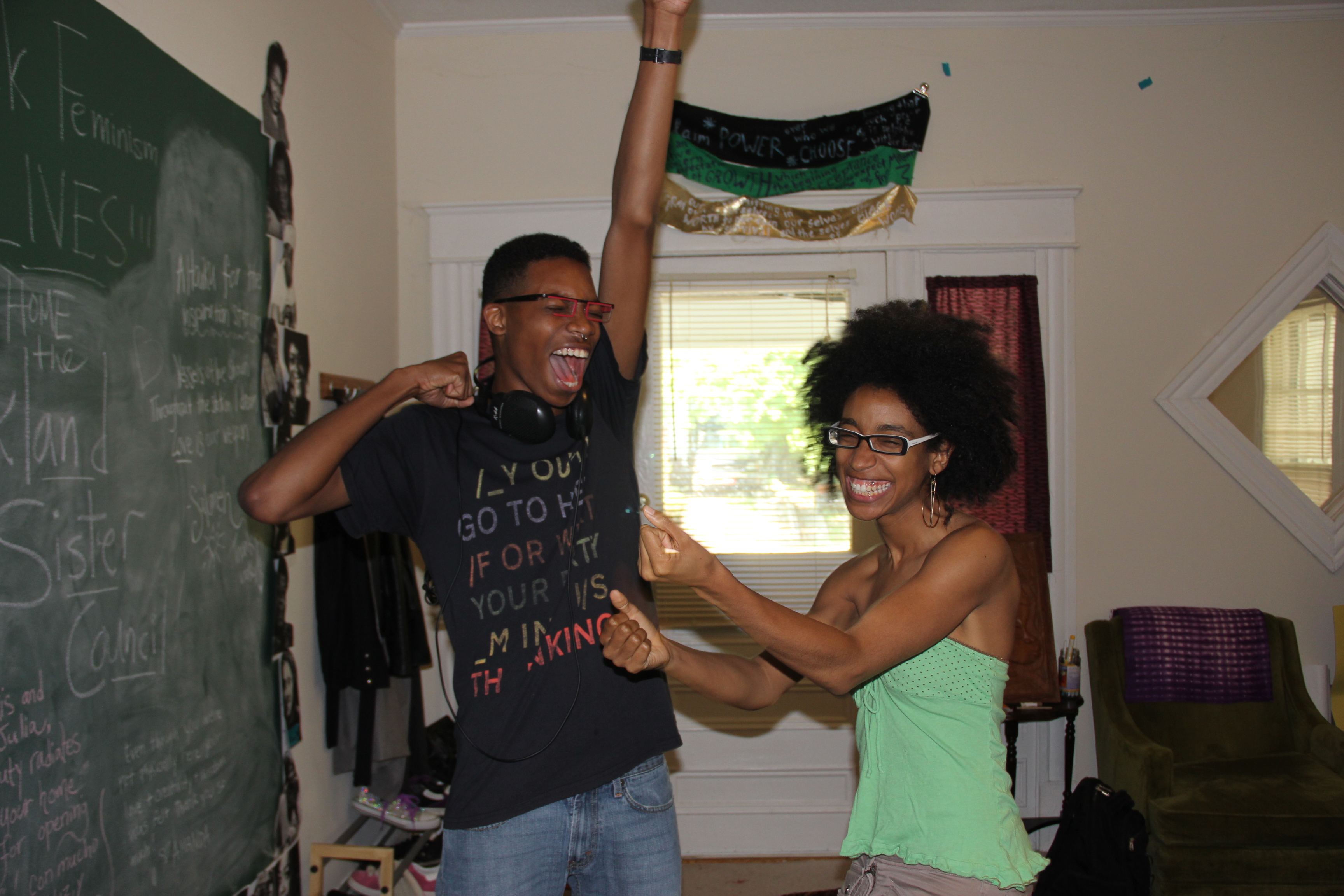 Want to see a whole album of pictures of us making the podcast and exuberantly celebrating Sakia?
Want to see a whole album of pictures of us making the podcast and exuberantly celebrating Sakia?
http://www.facebook.com/media/set/?set=a.894854362522.2423816.103868&l=a798c6bb5a
Want to donate to the ongoing leadership building collaboration between Eternal Summer and SpiritHouse?
Or sustain: We need to be clear about who we are trying to be equal to. In her blog post Arielle Loren asserts that most women do not identify as being feminists even if they share its core ideologies, that there has been a shift in the contemporary agenda for women's equality and that women are tired of rhetoric of hardcore oppression and patriarchy. She goes on to say that "frankly, all of the traditional feminist criticism of her "Who Runs The World (Girls)" video is just another example of the disconnect between intellectual theory and real life." Beyonce is the face of contemporary feminism because women feel empowered listening to Beyonce's music, so consequently, they take this "power" with them as they go on about their day to day lives. Interesting. Let me lay out my assumptions. Feminism is not about being equal to men. All men are not equal. A black man from 135th street with a Harvard MBA does not have the same social capital as a Black man from 135th street who just got out of Rikers. Full stop. Next. We need to be clear about who we want to be equal to. In fact, we need to ask do we want to be equal or do we want to be free? Second assumption. Black feminists are rooted in Love. Black Feminists are interested in creating spaces for men to feel because men who don't feel do not know how to Love. Black feminists are interested in holding themselves, and others accountable when they say racist, homopobic 'ish, because thats how we roll. Black feminists will get up in that behind when a rapper tries to make jokes and bets about non consensual choking of women during sex. Peace to Jay Electronica. The Black feminist I know are rooted in Love. Being rooted in Love means that you understand that you will not be able to have meaningful emotionally invested relationships with another adult until you have forgiven you one OR both of your parents for abandoning you. Peace to all my homies who are in therapy. We grown. Black Feminist Love is hella grown.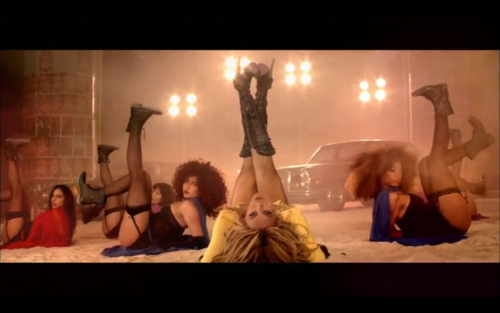
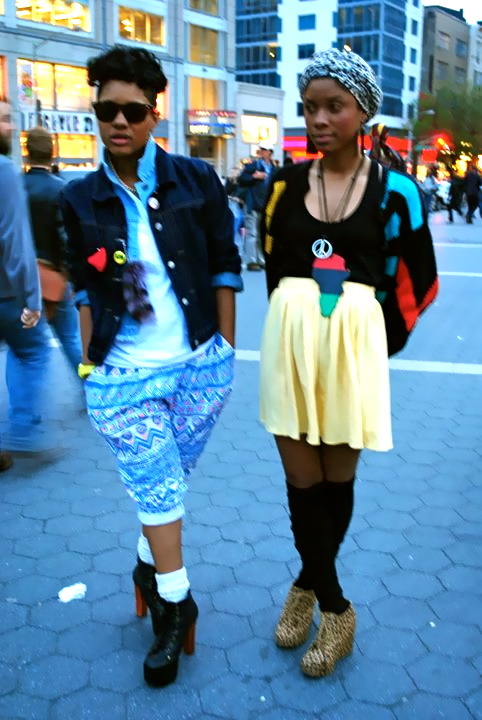
When you lead by example, people who are close to you soak up the influence.
1. Gay people -- generally speaking -- have a responsibility to our own community and to future generations of gay people to come out, if and when we feel that we can.
2. We should all get to decide for ourselves the "if and when we feel that we can" part of that.
3. Closeted people should reasonably expect to be outed by other gay people if (and only if) they prey on the gay community in public, but are secretly gay themselves.
I also believe that coming out makes for a happier life, but that's not a matter of ethics, that's just corny advice.
I'm learning to fly, to levitate myself. No one is teaching me. I'm just learning on my own, little by little, dream lesson by dream lesson. Not a very subtle image, but a persistent one. I've had many lessons, and I'm better at flying than I used to be. I trust my ability more now, but I'm still afraid. I can't quite control my directions yet. - Parable of the Sower.
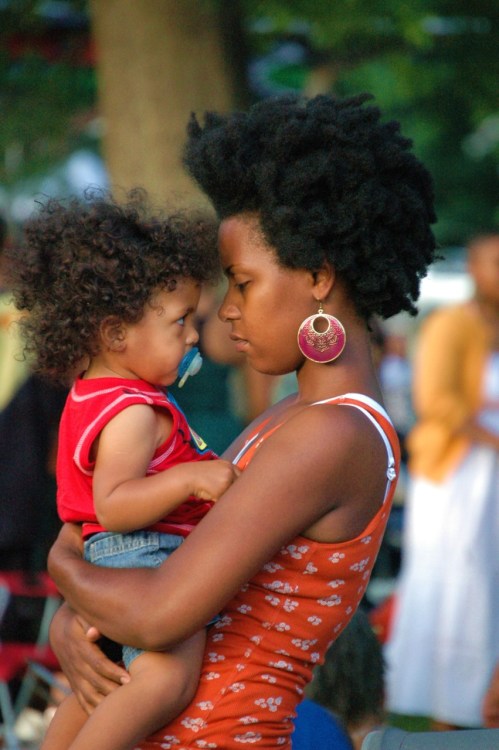
thats beautiful
Love love love love! There is so much power in their gaze!
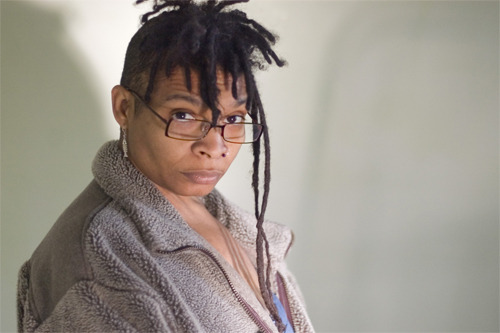
Image is a portrait photograph of Nalo Hopkinson.
Nalo Hopkinson, Science Fiction and Fantasy Writer
Because of the work that many people did before me to bring women's voices to the field, I'm able to inhabit a science fiction community of my choice, where women are well represented in the writing, amongst the writers and in the discourse. But it's still perfectly possible to be an SF aficionado and never encounter that side of the genre. It's still perfectly possible to be told that women don't write good SF, that we're better at fantasy. Which is a crock. One thing I learned from working for years as a grants officer for an arts council is that if you have one set of traditional markers for assessing excellence in a particular art form, you will likely not recognize excellence from a tradition that uses another set of markers. Writing by women speaks to a different — though overlapping — set of realities than writing by men. Fully appreciating it takes learning to understand those realities.